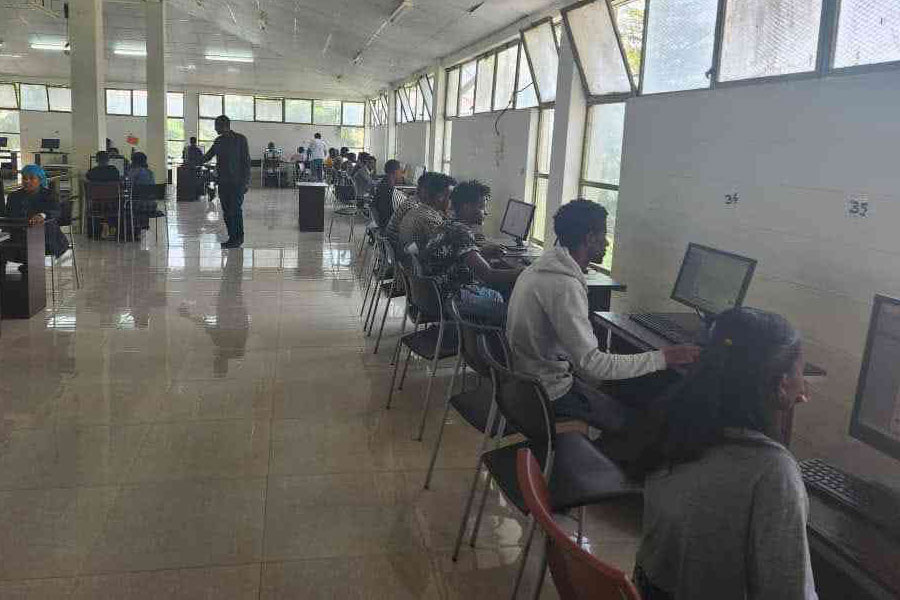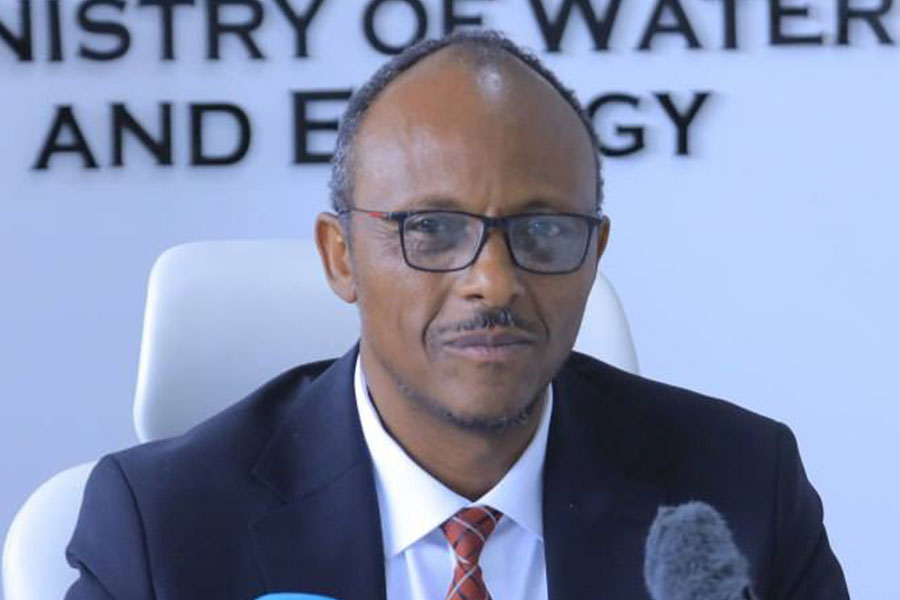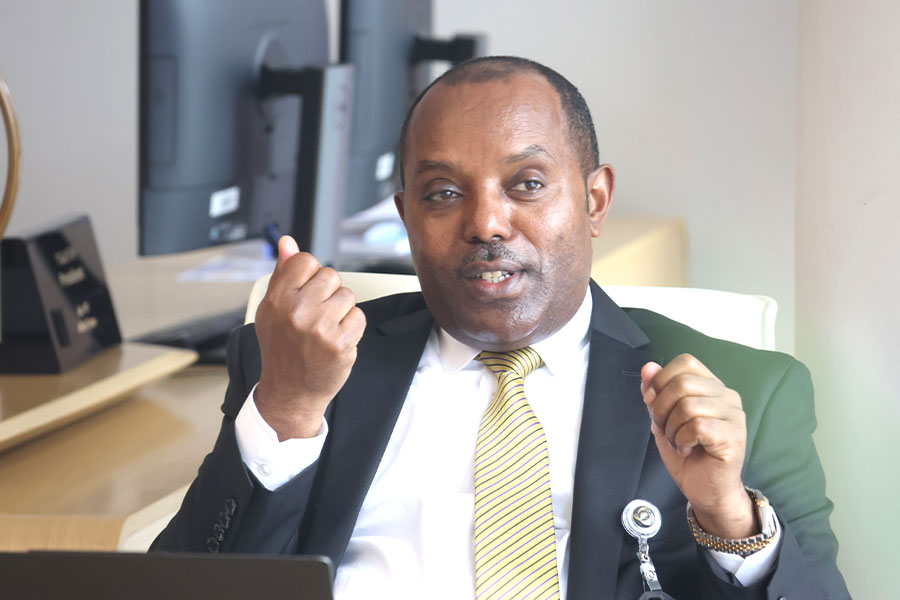
Agenda | Jul 08,2023
The cold-blooded slaughter of dozens of community members in Gawa Qanga Kebele took place on what was once hopeful ground. A setting for the countrywide Green Legacy Initiative became the scene of senseless bloodshed seemingly overnight. The same community members who had hunched over to plant hundreds of seedlings as part of the Prime Minister's reforestation campaign mere months ago were slain in the very same place by assailants who had lured them there under the guise of a peaceful meeting.
"You might have seen it on television," said a local farmer who wished to remain anonymous, describing the place that had had its share of media attention when the Initiative was in full gear. "The bandits called us to a meeting there the morning after they took control over the Kebele."
The armed assailants, who have been present in the region for nearly three years, wasted no time in seizing control of the area just hours after Ethiopian Defense Forces evacuated it. Residents of the community were planning to escape in the early hours of the morning of November 1. Still the bandits went around the neighbourhood announcing a meeting, stating that they had no interest in harming the community.
"They said their problem was with the government and not us," said the farmer, who managed to escape with his wife and seven children.
So residents stayed behind. Those that were afraid to take part were beaten into submission, according to the farmer. What followed was a torrent of abuse and insults at the gathering of community members.
"They told us we weren't welcome there," he said, "that our bodies would be burnt before being buried."
Then they opened fire.
Some, like the farmer and his family, managed to escape, but 36 people lost their lives, according to the reports by the zonal administration. Human rights groups estimate this number to be as high as 54. But even the zonal administration of West Wollega, where the area is located, admits that the damage is still being assessed.
"We found another body of a woman in the forest nearby," said Elias Umeta, administrator for the Zone. "We're going back to the attack sites to do an inventory of what has been lost," he continued, "as a lot of families have lost their cattle and belongings."
The perpetrators took what they could and turned 94 homes and an elementary school into ashes before they departed. The attacks left 850 people displaced and looking for shelter in neighbouring weredas. In the days following the attack, the zonal administration has set up a committee to address the immediate needs of the community members now sheltered in an unfinished high school.
"We've had support like food, clothes and cooking materials coming in," said Elias. "We've been able to give out a change of clothes to 60 people and nutritious food to children."
Ethiopian Defence Forces are also back in the area, but the security in neighbouring areas, which is still precarious, has made it difficult to deliver the necessary support to the community. The search for bandits, who could harm travelers in the area, is still underway, according to the administrator.
Internally displaced people in the country due to conflict alone make up over 1.2 million individuals in the country.
For those that have made it out with their lives, the support that they have received has hardly been any solace. Food supplies are inadequate, and there is nothing to cook it with anyway. The lack of clothes has also made cold nights unbearable.
"They've given us wheat grains and tea," said another farmer staying in the school. "It is still sitting there — I'm using the money I have to buy bread for my children, so they don't starve," said the father of five. His father-in-law was among those killed by gunfire at the meeting.
But what meagre amount of money he had managed to bring with him is slowly dwindling. His 12 cattle dispersed in the neighbouring forests and his farm destroyed, he has few options but to wait and see what the response from the government will be.
Our wait won't be longer than two months, the farmer vowed.
"Until we find some work, that's all the time we need," he said.
Though the zonal administration plans on ushering the community back to their homes in the coming weeks, he has no intention of doing that.
"The bandits will come back once they know the security forces have left; they have eyes and ears everywhere," he said. "They will come back, and we know that."
"I am happy I escaped with my life," he said. "We can find another means to live; we just need security to leave from here."
The massacre in West Wollega is the latest in a spree of violent incidents that have plagued the country over the past few months. Less than two weeks before this, Bench Sheko Zone in Southern Nations, Nationalities & Peoples' Regional State saw its share of horror.
There assailants left 31 dead in Gura Ferda Wereda. Consequently, over 5,000 took flight to neighbouring kebelesfor sanctuary.
Nine million Birr has been allocated to provide wheat, edible oil and bed clothes for members of the community who are fleeing the violence, according to the zonal administration.
The attacks are under investigation and have been followed by the arrest of 97 individuals, including several government officials, on charges of aiding and abetting the violence in one form or another.
This is part of what the government is doing to address this problem, according to Fikre Aman, administrator of the Zone.
"The officials who'd been supporting this need to be held accountable according to the law," he said. "We've apprehended 16 officials from different levels of administration in the zone."
The area is now under the control of the special forces, according to the administrator. He added that he believes that all the displaced will be returned to their homes in two weeks.
This may prove to be more difficult than planned, as evidenced by peoples displaced by earlier attacks across the country who are still waiting to get back to their homes.
In Metekel Zone, Benishangul-Gumuz, Sitotaw Aweke lost his wife and two children in an attack that took place in September and is still waiting to go back to his farm.
"We don't have enough food to eat," said the trader, who also used to work on his sesame farm before the devastating blow that was dealt to his neighbourhood. "We've yet to find a solution from the government. We haven't even had anyone to console us."
Insecurity still looms large in the region and the roads to his home are still blocked. Sitotaw hopes to be able to retrieve his two donkeys when the roads do eventually open. For now, he is looking to find work as a daily labourer, though that has yet to happen.
Sitotaw and over a million others in the country are in a similar boat — displaced through conflict alone.
The United Nations Office for the Coordination of Humanitarian Affairs (UN-OCHA) has been witnessing hotspots of violence across the country since 2017, according to Sajjad Mohammad Sajid, head of the office in Ethiopia.
Violence over land and resource disputes between Somali and Oromo communities displaced over a million people in the country in October 2017. Since then, other conflicts have broken out in eastern Ethiopia. In 2018, violence in West Guji Zone displaced a further 800,000 people.
"There has been some resettlement in Gedeo and Guji Zone," said Sajjad, "but it's still tense across the borders between the boundaries of Oromia and Somali regional states."
Places like the Somali Regional State have the biggest concentrations of displaced people, numbering close to 100,000 people in two camps in Koloji, according to data from UN-OCHA.
Human rights violations and continuing insecurities have not only brought on new problems but threaten to undo progress and development achieved in the country so far.
Currently, assessments show that 15.2 million people in the country require assistance for food and non-food items. And while 50pc of the funding has been secured, the rest of the required 1.4 billion dollars is still being sourced.
But the conflict has made an already hard job even harder as accessibility to the areas that need the most help is barricaded off.
"We negotiate with the Ministry of Peace to gain safe passage to places where there are still violent operations happening," explained Sajjad, "and this takes time."
The volley of unrest in the country is eclipsed only by the recent outbreak of war between Tigray Regional State and the federal government. Military operations were launched after midnight last week on the night of Tuesday, November 4, 2020, openly escalating the tension that had been brewing over the past several months. With a state of emergency declared in the Regional State and all communication lines cut off, there is little known about what is happening there.
The psychological, physical and economic aftereffects of this are sure to reverberate for some time to come, according to Kassahun Berhanu (PhD), a political science lecturer at Addis Abeba University.
Rebuilding the society from where it stands now will require pulling assets from other segments of the country's resources and development efforts, according to the expert.
Trust between communities will break down, and even mobility within the country will be obstructed, he added.
Services, trade and small and medium-sized enterprises that took time to get to where they are now will be set back to square one. This is in addition to investors, who may rethink dropping investment interests altogether.
"The protection of people's well-being needs to be strengthened," he said, "alongside dialogue that needs to take place if the trust is to be established again between communities." Community elders play a vital role in this, according to him.
Dialogue, however, needs to take place in parallel to bringing perpetrators to legal action.
"Those that have perpetrated crimes or aided and allowed this to happen, need to be held accountable," he said.
PUBLISHED ON
Nov 07,2020 [ VOL
21 , NO
1071]

Agenda | Jul 08,2023

Viewpoints | Jan 09,2021

My Opinion | Apr 22,2023

Sunday with Eden | May 18,2019

My Opinion | Jan 11,2020

Fortune News | Jul 06,2025

Addis Fortune | Feb 14,2022

Commentaries | Jun 08,2024

News Analysis | Aug 30,2025

Exclusive Interviews | Sep 06,2025

Dec 22 , 2024 . By TIZITA SHEWAFERAW
Charged with transforming colossal state-owned enterprises into modern and competitiv...

Aug 18 , 2024 . By AKSAH ITALO
Although predictable Yonas Zerihun's job in the ride-hailing service is not immune to...

Jul 28 , 2024 . By TIZITA SHEWAFERAW
Unhabitual, perhaps too many, Samuel Gebreyohannes, 38, used to occasionally enjoy a couple of beers at breakfast. However, he recently swit...

Jul 13 , 2024 . By AKSAH ITALO
Investors who rely on tractors, trucks, and field vehicles for commuting, transporting commodities, and f...

Oct 18 , 2025
The political establishment, notably the ruling party and its top brass, has become p...

Oct 11 , 2025
Ladislas Farago, a roving Associated Press (AP) correspondent, arrived in Ethiopia in...

Oct 4 , 2025
Eyob Tekalegn (PhD) had been in the Governor's chair for only weeks when, on Septembe...

Sep 27 , 2025
Four years into an experiment with “shock therapy” in education, the national moo...